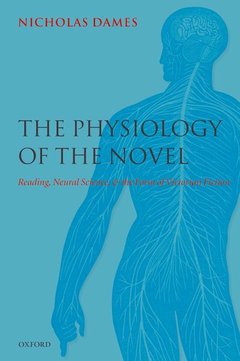The Physiology of the Novel Reading, Neural Science, and the Form of Victorian Fiction
Langue : Anglais
Auteur : Dames Nicholas

How did the Victorians read novels? Nicholas Dames answers that deceptively simple question by revealing a now-forgotten range of nineteenth-century theories of the novel, a range based in a study of human physiology during the act of reading, He demonstrates the ways in which the Victorians thought they read, and uncovers surprising responses to the question of what might have transpired in the minds and bodies of readers of Victorian fiction. His detailed studies of novel critics who were also interested in neurological science, combined with readings of novels by Thackeray, Eliot, Meredith, and Gissing, propose a vision of the Victorian novel-reader as far from the quietly immersed being we now imagine - as instead a reader whose nervous system was addressed, attacked, and soothed by authors newly aware of the neural operations of their public. Rich in unexpected intersections, from the British response to Wagnerian opera to the birth of speed-reading in the late nineteenth century, The Physiology of the Novel challenges our assumptions about what novel-reading once did, and still does, to the individual reader, and provides new answers to the question of how novels influenced a culture's way of reading, responding, and feeling.
Introduction: Toward a History of Victorian Novel Theory. Part One: Theories of Reading: A Critical Prehistory. 1. Mass Reading and Physiological Novel Theory. Part Two: Practices of Reading: Four Cases. 2. Distraction's Negative Liberty: Thackeray and Attention (Intermittent Form). 3. Melodies for the Forgetful: Eliot, Wagner, and Duration (Elongated Form). 4. Just Noticeable Differences: Meredith and Fragmentation (Discontinuous Form). 5. The Eye as Motor: Gissing and Speed Reading (Accelerated Form). Coda: I. A. Richards and the End of Physiological Novel Theory.
Nicholas Dames is Theodore Kahan Professor in the Humanities at Columbia University. His first book, Amnesiac Selves: Nostalgia, Forgetting, and British Fiction, 1810-1870 (OUP, 2001), won the Sonya Rudikoff Award from the Northeast Victorian Studies Association. He is the author of numerous articles on British and French literature of the nineteenth century.
Date de parution : 09-2007
Ouvrage de 288 p.
16.4x24 cm
© 2024 LAVOISIER S.A.S.



